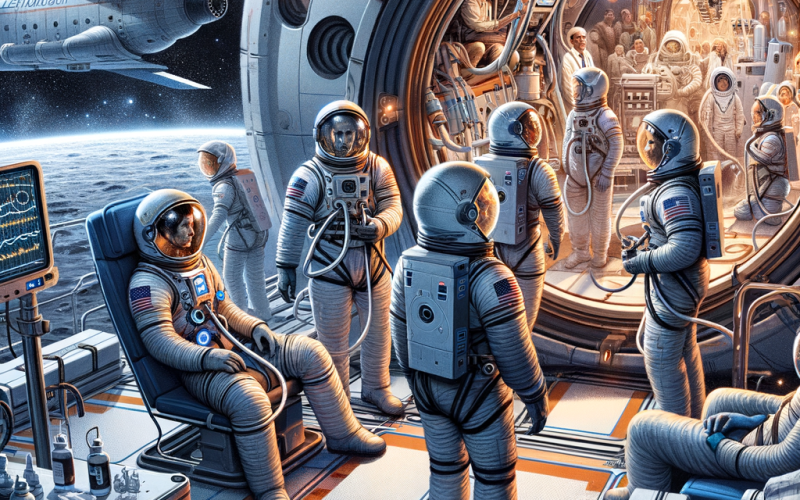Human Mission to Mars in Serious Doubt after Discovery Made on Effects to Astronauts’ Bodies
A recent study has cast serious doubt on the feasibility of a human mission to Mars due to the devastating effects that space travel has on astronauts’ bodies. The study, published in the journal Nature Medicine, found that astronauts who spent six months on the International Space Station (ISS) experienced a significant loss of muscle mass and bone density, as well as changes in their immune systems and cardiovascular health.
These findings are particularly concerning given the long duration of a human mission to Mars, which would likely take several years. The researchers estimate that astronauts would lose up to 20% of their muscle mass and bone density during a Mars mission, which could make them too weak to perform the tasks necessary to survive on the planet.
The study also found that astronauts’ immune systems were weakened by space travel, making them more susceptible to infection. This is a major concern, as astronauts would be exposed to a variety of new and potentially dangerous microorganisms on Mars.
In addition to the physical effects of space travel, the study also found that astronauts experienced significant psychological changes. These changes included increased anxiety and depression, as well as difficulty sleeping and concentrating.
The researchers conclude that the findings of their study “raise serious concerns about the feasibility of a human mission to Mars.” They recommend that further research be conducted to mitigate the risks of space travel on astronauts’ health before any such mission is attempted.
Background
The idea of sending humans to Mars has been around for centuries, and it has been the subject of much scientific research and speculation. However, there are a number of challenges that must be overcome before a human mission to Mars can become a reality.
One of the biggest challenges is the physical toll that space travel takes on the human body. Astronauts who spend extended periods of time in space experience a number of health problems, including muscle loss, bone loss, and immune system dysfunction. These problems are caused by a combination of factors, including the microgravity environment of space, the high levels of radiation exposure, and the psychological stress of being isolated from Earth.
Another challenge is the long duration of a human mission to Mars. It would take several months to travel to Mars, and astronauts would need to spend at least a year on the planet before returning to Earth. This would expose them to the harsh conditions of Mars for an extended period of time, and it would increase the risk of developing health problems.
The findings of the recent study in Nature Medicine raise serious doubts about the feasibility of a human mission to Mars. The study found that astronauts who spent six months on the ISS experienced significant health problems, including muscle loss, bone loss, and immune system dysfunction. These problems would be even more severe during a Mars mission, which would be much longer and more dangerous.

Implications
The findings of the study in Nature Medicine have serious implications for the future of human space exploration. If it is not possible to mitigate the risks of space travel on astronauts’ health, then it may not be possible to send humans to Mars.
This would be a major setback for space exploration, and it would raise questions about the future of human presence in space. It would also be a disappointment to the many people who have dreamed of sending humans to Mars.
However, it is important to remember that the study in Nature Medicine is just one study. More research is needed to confirm the findings of the study and to develop ways to mitigate the risks of space travel on astronauts’ health.
Future Research
The findings of the study in Nature Medicine underscore the need for further research on the effects of space travel on the human body. This research should focus on developing ways to mitigate the risks of space travel, such as developing new exercise and nutrition protocols, as well as new drugs and therapies.
This research is essential if we want to make human missions to Mars a reality. By understanding the risks of space travel and developing ways to mitigate those risks, we can make it possible for humans to explore the Red Planet.










